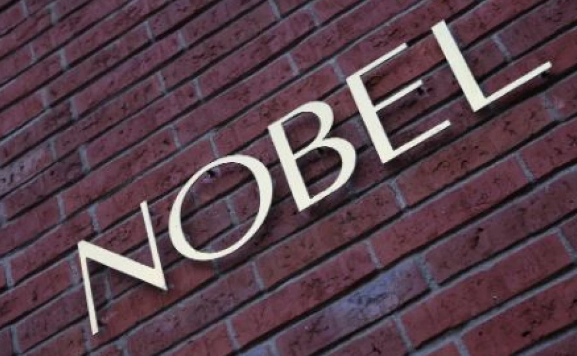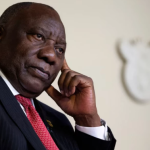The Nobel Prize in Literature has largely celebrated Western writers since its inception in 1901, but experts suggest the Swedish Academy may broaden its focus this year. With no official shortlist, speculation about the potential winner is intense, with the decision set to be announced Thursday at 1:00 pm (1100 GMT).
Many believe Chinese author Can Xue, a favorite on several betting sites, is in the running, alongside Australian novelist Gerald Murnane. Can Xue, often compared to Franz Kafka, is known for her experimental style that transforms the ordinary into the surreal.
The academy is known for surprising the public with lesser-known authors, expanding their reach. “I think they’ve gone to great lengths to find a writer who will catch the cultural commentariat off guard,” said Bjorn Wiman, the culture editor of Sweden’s Dagens Nyheter, in an interview with AFP.
This was the case in 2021, when Zanzibar-born British author Abdulrazak Gurnah won for his work on exile, colonialism, and racism. In 2016, US folk rock legend Bob Dylan took home the prize.
Wiman believes the prize could just as easily go to a writer from Mexico or Argentina, or perhaps an African author. “I think it will be a woman from a language zone outside Europe,” he said.
His personal choice, however, is British Indian-born author Salman Rushdie, who has become a symbol of free speech after receiving death threats over his 1988 novel *The Satanic Verses*, which was condemned by Iran’s supreme leader, and surviving a 2022 stabbing in New York that cost him his right eye.
“But then they will be accused of honoring another middle-aged man,” Wiman added, referring to last year’s winner, middle-aged Norwegian playwright Jon Fosse.
Since its inception, the Nobel Prize in Literature has been criticized as a Eurocentric, male-dominated award. Out of 120 laureates, only 17 have been women, with just eight of those in the past two decades. While 30 English-language authors and 16 French-language authors have been honored, only one Arabic writer, Egypt’s Naguib Mahfouz in 1988, has won the prestigious prize.
Regarding China, Carin Franzen, a literature professor at Stockholm University, noted that the country’s “literature is very vast,” yet that depth has not been reflected in the Nobel’s history. The last Chinese author to win was Mo Yan in 2012.
One possible explanation for this under-representation, according to Victor Malm, cultural editor at *Expressen*, is the judges’ limited linguistic skills. He predicted a win this year for Antiguan-American author Jamaica Kincaid but expressed doubt that a Hindi author would be chosen.
“I have a hard time believing that a Hindi author would suddenly be announced. No one in the Academy speaks Hindi, how could they have any credibility on the subject?” Malm pointed out, suggesting the judges would have to rely on translated works.
The academy has historically consulted experts in its selection process, and in 2021, it made an effort to include language experts in its deliberations for better representation. However, as Lina Kalmteg, a literary critic at Swedish public radio SR, pointed out, “It’s obviously not the same thing as being able to read in the original language.” She added that it’s rare for writers under Nobel consideration “to not be translated into Swedish at all.”
With so many Western laureates, questions arise about how the Nobel Prize in Literature can still be considered one of the world’s most prestigious literary awards.
Rasmus Landstrom, a literary critic for *Aftonbladet*, pointed out that historically, Western culture was regarded as superior, a view that the academy “said so outright” in the past. He noted that the jury’s deliberations, sealed for 50 years, reveal the institution has wrestled with this prejudice for decades.
Following a scandal in 2018 related to the #MeToo movement, which left the Academy in disarray, the institution pledged to broaden its prize both geographically and linguistically. Carin Franzen, a professor at Stockholm University, suggested that it would be a good move for the Academy to “open up to a non-European perspective.”
Franzen’s personal favorite for this year’s prize is Canadian poet Anne Carson. Meanwhile, Johan Hilton, cultural editor at *Goteborgs-Posten*, is betting on a Central or Eastern European writer.
He noted, “France, the United States, Britain, they’ve all won several times in recent years,” and highlighted that it is highly unlikely a Russian author would win this year, even one critical of the Kremlin. Hilton explained, “It’s politically impossible. I would be very surprised,” adding that it could damage the prize’s credibility.
Other names circulating in Stockholm’s literary circles include Hungarian author Laszlo Krasznahorkai, Romanian writer Mircea Cartarescu, Kenya’s Ngugi wa Thiong’o, and Japan’s Haruki Murakami.



